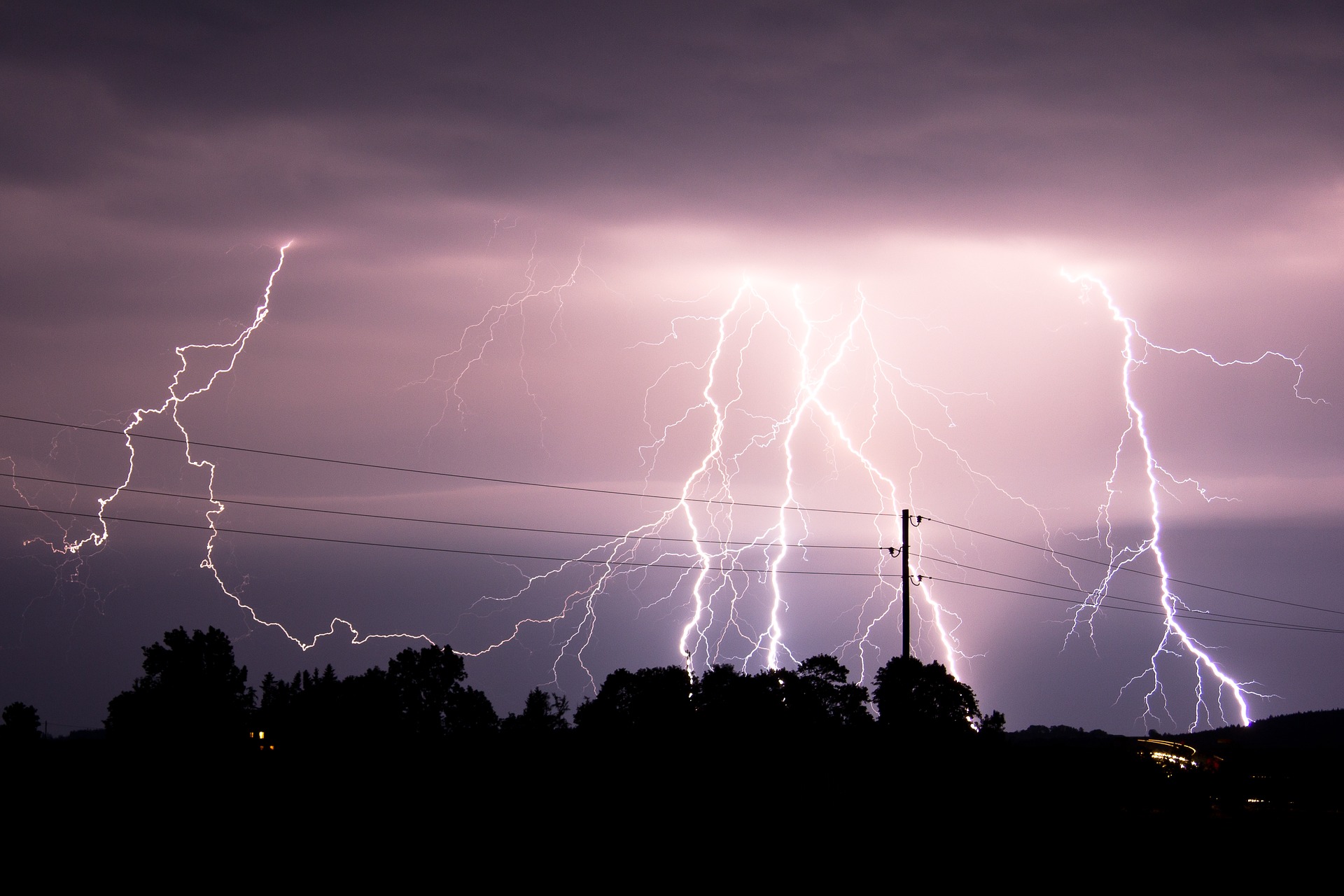This is the first in a three-part series by Mason students on the importance of emergency preparedness.
By: Cecilia Aguilar, a Mason student majoring in Communication
“There’s no harm in hoping for the best as long as you’re prepared for the worst.” – Stephen King in his book Different Seasons
Well-being and emergency preparedness go hand in hand. Planning now for managing future emergencies can relieve stress and improve your health and safety when those emergencies happen. Here’s why emergency preparedness is important, and how to make emergency plans that support your well-being.
Consider this scenario: It’s a late, hot, dark, and stormy night. A family is used to that kind of Virginia weather, so they think nothing of the thunderstorm. They’re pondering what to get for dinner and looking up restaurants on their phones. Suddenly, the lights are out. There’s a tree in the middle of the road, there are powerlines in the road, and everyone in the family is hungry. With only one flashlight for the family, everyone decides to sleep out the power outage because they are hot from the heat. They also hope their baby can sleep through the night without her nightly bottle. That morning they wake up. Nothing has changed. The power is still out.
No one wants to be stuck in a situation similar to this one. The good news about that is there are many emergency preparedness steps to avoid it.
Emergency preparedness “refers to the steps you take to make sure you are safe before, during, and after an emergency or natural disaster,” according to the New York State Health Department. How does emergency preparedness correlate with well-being? Well, let’s set the scene: you’re spending the night doing assignments. You have five due tomorrow, plus a midterm. The fire alarm goes off. You’re used to Mason’s random fire drills in the dormitories, but this one is real, so you evacuate. As you stand outside in the middle of the night, suddenly you’re stressing about all the stuff you left, not having spare clothes or shoes, not having any food, and not having any money because you’re a college student. All of that stress can be avoided by having a plan and having an emergency preparedness kit.
Emergencies can include disease outbreaks, medical emergencies, injuries, and natural disasters. Research from NASA shows the amount of heat-trapping gasses we emit into the atmosphere is increasing because we burn excessive amounts of fossil fuels to power our cars and homes. The extra heat-trapping gasses in the atmosphere cause an increasing number of severe storms and other problems like floods and wildfires.
“You’re going to see an increase in disasters as one thing happens, it’s just something we’re going to have to get used to,” said Courtney Arroyo, Community Engagement Manager at the Fairfax County Office of Emergency Management. “The last thing you want to deal with is a personal crisis and a disaster.”
How to Prepare for Future Emergencies
What can you do to be more prepared? Every time you go grocery shopping, get some canned food. Designate a different roommate to get the canned item every time. Keep these items in your residence in an emergency preparedness kit, with your first aid kit and extra essentials. Don’t forget important documents, emergency numbers, etc. Here are details on what to have in your kit: https://www.ready.gov/be-informed. On this website, you can also find a form to make an emergency preparedness plan. Have all of this with you in a physical format, so you can ensure you have access to everything even if your phone is not available.
Make emergency preparedness fun. Get some themed bandages, themed masks, or whatever makes being prepared more fun for you. At the end of the semester or year, don’t stress too much about all the leftovers. Instead, donate them to the Patriot Pantry to help others in need.
Additional Resources
The Mason Ready website makes it easy for you to find the resources you need to prepare yourself for all types of emergency situations that may arise on campus.
Take a look at this U.S. Department of Health and Human Services guide. You can find out more about emergency preparedness and learn more about different emergencies that you can face and should be prepared for in the future.
This Ready.gov guide provides information about emergency preparedness and features forms to figure out your plans for different emergencies that can occur. The guide features forms for adults, teenagers, and children. They are available in different languages.
On this Fairfax County Office of Emergency Management page, you can find out what you should have in your emergency kit and where to store your emergency kit.
This Fairfax County Office of Emergency Management page will help you find out more about what should be included in your emergency plan and how to make an emergency plan.
Write one of these Thriving Together Series features! We’re looking for contributions on all topics related to well-being. Read other Thriving Together Series articles here and contact us at [email protected] for guidelines. Thank you for helping our Mason community thrive together online!






















